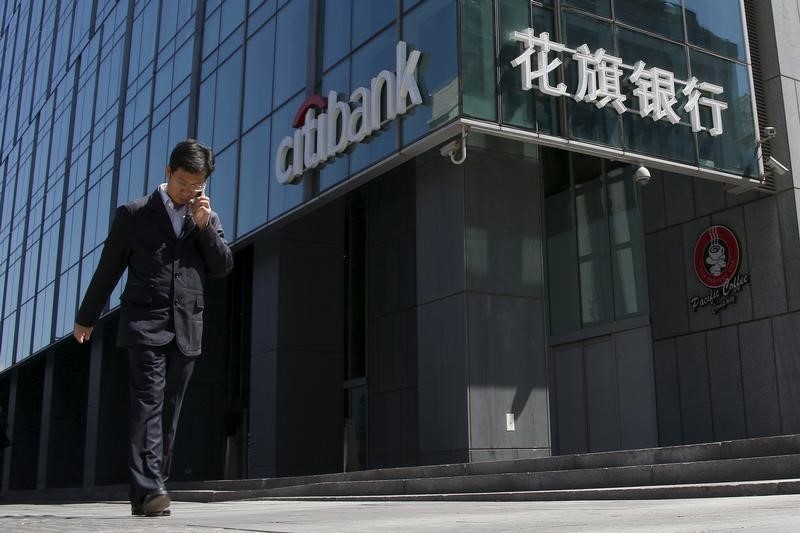
© Reuters.
C
-0.17%
Add to/Remove from Watchlist
Add to Watchlist
Add Position
Position added successfully to:
Please name your holdings portfolio
Type:
BUY
SELL
Date:
Amount:
Price
Point Value:
Leverage:
1:1
1:10
1:25
1:50
1:100
1:200
1:400
1:500
1:1000
Commission:
Create New Watchlist
Create
Create a new holdings portfolio
Add
Create
+ Add another position
Close
BAC
-0.98%
Add to/Remove from Watchlist
Add to Watchlist
Add Position
Position added successfully to:
Please name your holdings portfolio
Type:
BUY
SELL
Date:
Amount:
Price
Point Value:
Leverage:
1:1
1:10
1:25
1:50
1:100
1:200
1:400
1:500
1:1000
Commission:
Create New Watchlist
Create
Create a new holdings portfolio
Add
Create
+ Add another position
Close
GS
-0.40%
Add to/Remove from Watchlist
Add to Watchlist
Add Position
Position added successfully to:
Please name your holdings portfolio
Type:
BUY
SELL
Date:
Amount:
Price
Point Value:
Leverage:
1:1
1:10
1:25
1:50
1:100
1:200
1:400
1:500
1:1000
Commission:
Create New Watchlist
Create
Create a new holdings portfolio
Add
Create
+ Add another position
Close
JPM
+0.14%
Add to/Remove from Watchlist
Add to Watchlist
Add Position
Position added successfully to:
Please name your holdings portfolio
Type:
BUY
SELL
Date:
Amount:
Price
Point Value:
Leverage:
1:1
1:10
1:25
1:50
1:100
1:200
1:400
1:500
1:1000
Commission:
Create New Watchlist
Create
Create a new holdings portfolio
Add
Create
+ Add another position
Close
Citigroup Inc (NYSE:C).’s Chairman, John C. Dugan, has expressed concerns about US proposals to increase capital buffers for major Wall Street banks, including Citigroup, JPMorgan Chase & Co. (NYSE:JPM), Goldman Sachs Group Inc (NYSE:GS)., and Bank of America Corp (NYSE:BAC). The proposal, if implemented, would require these institutions to raise their capital by nearly 19% – a move Dugan believes could significantly impact the lending potential of US companies during an unstable economic period.
Dugan’s objections come on Wednesday, suggesting that these plans are a reaction to difficulties faced by regional US banks earlier this year. The proposed changes are linked to Basel III, an international regulatory agreement drawn up following the 2008 financial crisis. Democratic regulators argue that recent bank failures underscore the necessity for more stringent rules.
In addition to his concerns about the proposed capital buffer increase, Dugan also touched upon several issues related to Citigroup’s operations. He discussed redundancies under the leadership of Citigroup’s CEO Jane Fraser and the bank’s ongoing efforts towards simplification. He also mentioned anticipated revenue growth, robust capital and liquidity levels at the bank.
Furthermore, Dugan addressed the effects of violence in Israel on Citigroup’s operations and staff safety, as well as its potential impact on oil and commodity prices. His comments shed light on the broader implications of geopolitical events on banking operations and global markets.
Overall, Dugan’s remarks reflect a growing concern among banking leaders about potentially detrimental effects of proposed regulatory changes on Wall Street banks’ ability to lend and perform intermediation functions. This comes at a time when many financial institutions are grappling with economic uncertainties and geopolitical tensions.
This article was generated with the support of AI and reviewed by an editor. For more information see our T&C.
Source: Investing.com






























